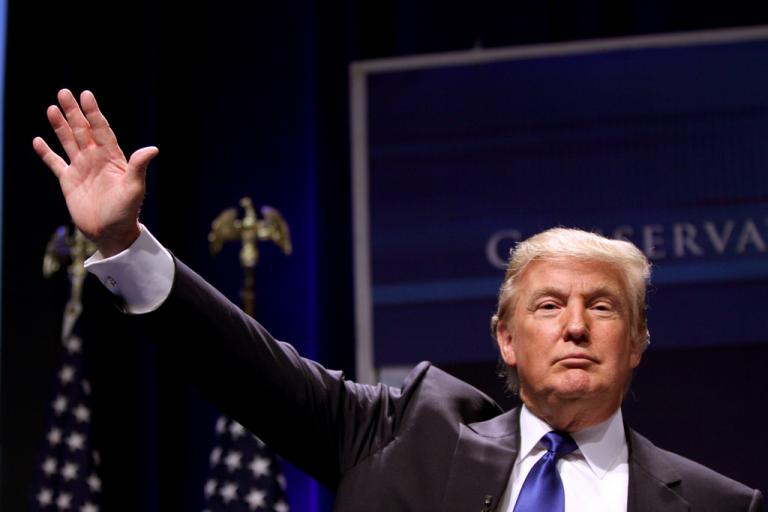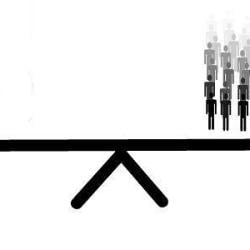As I’ve said before, patronage is the most overlooked aspect of traditional honor-shame cultures. People familiar with the subject might think of The Godfather or Tony Soprano.

But we need not look to the mob. The NY Times’ recent coverage of Donald Trump’s presidency help us see what ancient patronage looked like.
Ancient Benefaction and Thanksgiving
First, we need a little background. What is the relationship between patronage and thanksgiving in the ancient world?
That question is too big to answer here. For now, I’ll offer a brief quote from a scholar on the subject. Jerome Neyrey has written on the link between thanksgiving and reciprocity in the context of ancient worship.
Israelite use of this expression honors God as being so perfect and superior to mortals that “God does not want anything” (Ep. Arist. 211), which becomes part of the praise of God in prayer. But if God needs nothing, God’s clients do: “O Lord of all, who has need of nothing (άττροσδεής)… undefiled for ever this house, so recently purified” (2 Macc. 14.35–36).
Philo states that one way of honoring God’s benefaction is to stress that as Giver, God gave ‘all’ to mortals but himself needs nothing: “But God has bestowed no gift of grace on Himself, for He does not need it, but He has given the world to the world” (Deus Imm. 107; cf. Vit. Mos. 1.157).
Josephus’s remark explicitly comes in the context of reciprocity to the deity for benefaction: “Not by deeds is it possible for men to return thanks to God, for the Deity stands in need of nothing (άπροσδεής) and is above all such recompense.” (Josephus, Ant. 8.111).[1]
Neyrey adds another citation from Josephus. He says,
We find evidence that the ancients appreciated how commitment contains influence and so is offered to secure future benefaction. For example, Josephus illustrates this nexus:
Twice each day, at the dawn and when the hour comes for turning to repose, let all acknowledge before God the bounties which He has bestowed on them through his deliverance from the land of Egypt: thanksgiving is a natural duty, and is rendered alike in gratitude for past mercies and to incline the giver to others yet to come (Ant. 4.212).[2]
Why do I cite these writers? In broad terms, I want to illustrate the role of thanksgiving in an ancient patronage system. People gave thanks to benefactors, and certainly to God, as a way of praise, to express loyalty, and to secure future grace (i.e. gifts).
Thank Trump
Ancients thanked God, the world’s ultimate Benefactor and Patron. On the other hand, the President of the US wants people to thank Trump.
According to a NYTimes article,
President Trump recently tweeted, “The United States, under my administration, has done a great job of ridding the region of ISIS. Where is our ‘Thank you, America?’ ”
President Trump has often criticized Americans for not being grateful enough. Now he has chastised the whole world as a thankless lot of humanity — a globe of ingrates.
Mr. Trump’s obsession with gratitude is a regular feature of his unscripted remarks and speeches. When people thank him, he likes them. But when slighted, he is quick to criticize unappreciative offenders. He has attacked Puerto Rican leaders as “politically motivated ingrates”; demanded public thanks from his cabinet and members of Congress; wants people to thank him for stock market gains; and excoriated a corporation as failing to thank him when he approved a project to its benefit.
The article is no mere “anti-Trump rant.” The writer, Diana Butler Bass, highlights the political significance of giving thanks.
Gratitude is central to Mr. Trump’s politics. He demands it of his followers, his cabinet and, indeed, of all citizens. He deploys gratitude against his enemies and critics to embarrass and shame. Being grateful is not an option. It is a requirement.
Donald Trump has made “thank you” divisive.
Yet gratitude has always been political. Sometimes it is used toward good political ends (such as public celebrations of thanksgiving). More often, however, authoritarian leaders have used gratitude to control critics and consolidate power.
She even gives space to introducing readers to ancient Roman patronage system.
Rome’s power was built on benefactors and beneficiaries bound by reciprocal obligations of gratitude. It worked, but it was easily corrupted. Lower classes incurred huge debts of gratitude that could never be repaid, functionally enslaving them.
Commenting on US-Russian relations, Bass writes,
This helps explain why the Russia inquiry makes Mr. Trump angry. The suggestion that he benefited from anyone, much less a foreign government, undermines his self-image as unassailable benefactor. He never receives. He gives as he wills, and to whom he chooses. “Receivers,” like the poor, immigrants, women and persons of color, are considered weaker beings, consigned to the lower ranks of his social pyramid, and who, failing to reciprocate his paternalistic generosity, are chided for a lack of thanks.
I suggest you read the entire article for yourself. Let me know what you think.
- What other implications do you see?
- What aspects of patronage do you struggle to understand?
[1] Jerome Neyrey. “God, Benefactor and Patron: The Major Cultural Model for Interpreting the Deity in Greco-Roman Antiquity.” JSNT 21, no. 4(2005): 1484. Click here for an online version.
[2] Neyrey, “God, Benefactor and Patron,” p. 489.
















